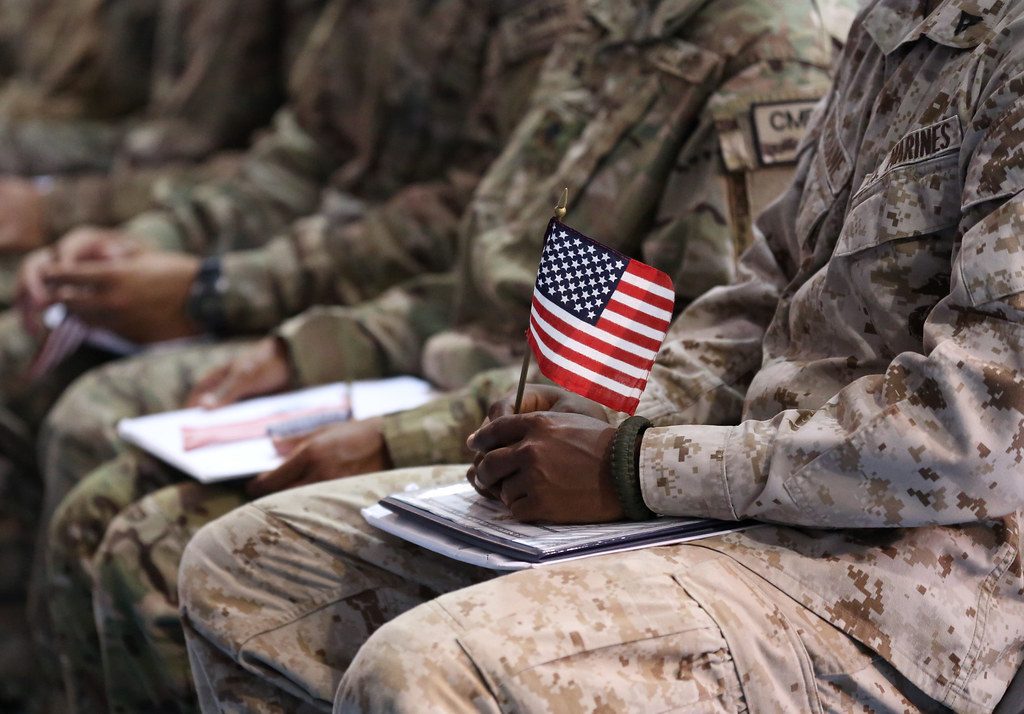Qatar recently called on all parties of the 2020 Doha Agreement to “maintain the gains” of the deal as Washington and Taliban continue to trade blame for violations.
A top US official has criticised an agreement signed between Washington and the Taliban in Doha as one of the worst diplomatic deals to which the US has ever been a party.
In an oped penned by David Petraeus, the former head of US and NATO forces in Afghanistan and former head of the Central Intelligence Agency (CIA) slammed the accord which was negotiated “without the elected Afghan government at the table.”
In February 2020, under the former Donald Trump administration, the US and the Taliban signed the US–Taliban deal (or the Doha Agreement) in Qatar that set 1 May 2021 as the deadline for the complete withdrawal of foreign forces from Afghanistan.
However, the pull out was on the condition that the Taliban halts its support for terrorist organisations.
The deadline was later revised to 11 September by President Biden without conditions, before changing it to 31 August following the Taliban takeover of Kabul.
“We acquiesced to Taliban demands because the resulting agreement gave us, in the narrowest sense possible, what we wanted: a defined timeline for our departure and a Taliban promise not to attack our forces (which was already quite difficult to do as, by that point, American soldiers were seldom on the front lines) in the interim,” Petraeus wrote in The Atlantic.
Deputy Spokesman for the Islamic Emirate Bilal Karimi, slammed Petraeus’s remarks, emphasising the effectiveness of the Doha Agreement.
“The Islamic Emirate believes in negotiations and engagement. We believe that there should be negotiations with all the countries over the concerns they have,” Karimi said, according to the official state news agency Tolo News.
Pointing to the inevitability of a Taliban takeover and unravelling colossal, Petraeus said “of course, our enemies knew we wanted to leave, because our leaders had repeatedly expressed that desire,” adding that given such pretence, the Taliban acknowledged not much needs to be given up in order to achieve what they want.
“In fact, to induce the Taliban to agree to what they wanted—our departure—we forced the Afghan government to release more than 5,000 Taliban detainees,” said the former head of CIA.
Many of those released detainees rejoined the Taliban’s ranks shortly after and helped enable the offensive that toppled the Afghan government after America withdrew its forces, he alleged.
This comes as Kabul and Washington exchange accusations of violating the Doha accord after an Al Qaeda leader was killed in a “precision” US airstrike in Afghanistan on 1 August by the CIA, which was subsequently announced by US President Joe Biden.
This was considered the biggest move against the militant group since its founder Osama bin Laden was killed in 2011.
The latest precision attack was the first ‘known’ US strike to occur in Afghanistan since Washington withdrew its troops and diplomats from the country in August 2021.
Speaking on condition of anonymity, US officials detailed Ayman Al Zawahiri was killed by “hellfire” missiles from a US drone when he came out on the balcony of his safe house in the centre of Kabul last week.
Through a text message to the Associated Press sent from his office in Doha, Sohail Shaheen, Taliban representative to the United Nations, said that the interim government and the group’s leadership were “never aware” of allegations speculating that Al Zawahiri’s was residing in Afghanistan’s capital.
The body of Al Qaeda leader, Ayman Al Zawahri, who was assassinated by the CIA last week, was not found at the site of the killing, the Taliban said on Saturday, following a probe into the assassination.
A Taliban official last week said the group is investigating the US “claim” that the Al Zawahiri was killed in a US drone strike in Kabul.
According to the local Radio Azadi which quoted the interim government’s spokesperson, Zabihullah Mujahid, material used by the United States in the air strike “destroyed everything”.
Prior to the probe, the Taliban denied Al Zawahiri’s presence in Afghanistan.
Denoting yet another mistake Washington carried out, Petraeus noted the timeline that had Washington withdrawing which coincided with the peak of the “fighting season” was a “major” mistake.
“In the end, the outcome came down to a lack of American strategic patience, evident right up to our final moments there—when instead of withdrawing, we could have adopted an approach that kept US troops on the ground, enabled by an armada of drones and coalition forces already deployed there from countries that broadly wanted to stay, as well as the crucial contractors needed for training and maintenance,” said the former head of of US and NATO forces in Afghanistan.
“In essence, then, from the beginning through to the end—but especially at the end—American commitment was lacking”.
American crimes in Afghanistan
The US invasion of Afghanistan, also Washington’s longest war, cost some $2 trillion and killed at least 71,000 civilians.
The Barack Obama administration, during which Petraeus served as former head of CIA, highly endorsed the US drone programme, authorising more strikes in his first year in the office than George W. Bush ever carried out during his entire time as president of the United States.
Until 2017, Afghanistan had been under frequent US bombardment, in an ‘unreported war’ that saw 1,337 weapons dropped in 2016 alone, a 40% rise on 2015.
The US invasion of Afghanistan, which left hundreds of thousands dead and destroyed much of the country’s infrastructure, was launched on Bush’s orders in 2001 following the September 11 attacks.
According to US figures, the brutal military intervention has killed more than 241,000 deaths casualties, of which 71,344 were civilians.
Between 2003 and 2004, Human Rights Watch [HRW] found that the US was complicit in war crimes in Afghanistan with American forces indiscriminately detaining innocent civilians who were not connected to hostilities taking place in the country.
Some civilians also told HRW that they were subjected to house raids.







